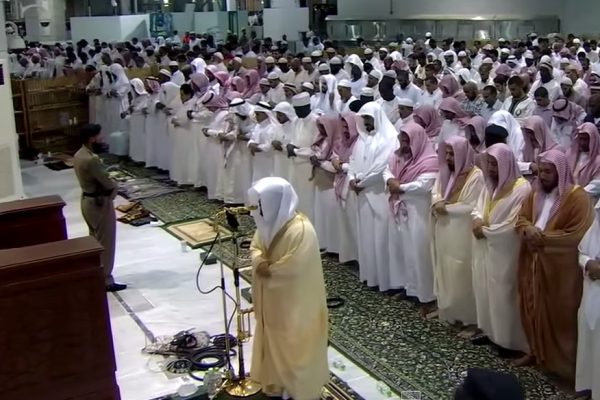Meaning of Allah Allah fī aṣḥābī
Question: During the Friday khuṭbah, what is the meaning when the imām says: ‘Allah Allah fī aṣḥābī’?
Answer
بسم الله الرحمن الرحیم
These words are part of a ḥadīth recorded by Tirmidhī, Aḥmad, and others on the authority of ʿAbdullāh ibn al Mughaffal in which the Prophet ﷺ reminds the believers of the close bond between himself and his companions; such that loving them has been connected to his love, and disliking them has ben linked to disliking him (may Allah protect us). The phrase ‘Allah Allah’ means ‘fear Allah’; i.e., fear Allah regarding my companions. The translation of the ḥadīth is as follows:
‘Fear Allah regarding my companions! Do not make them a target after me. Whosoever loves them does so for my love; and whoever detests them does so because of detesting me. Whosoever hurts them has hurt me; and whosoever hurst me has hurt Allah. And whosoever hurts Allah, then it is likely that Allah will seize him.’
Two pertinent points are mentioned here:
- The repeated word of Allah should be read together and with a fatḥah on the last hā; they should not be read with a pause in between or with a sākin on the hā. The purpose of repeating the word with a fatḥah is to create the meaning of a warning; i.e., ‘fear Allah’. In Arabic, this can be done by repeating a word and giving it a fatḥah. Grammatically, this is known as taḥdhīr.[1]
- The words of the ḥadīth in Tirmidhī, Aḥmad, and most other books are:
لا تَتَّخِذُوْهُمْ غَرَضًا بَعْدِي.
In some narrations, like in Shuʿab al Īmān of Bayhaqī, the words are:
لا تَتَّخِذُوْهُمْ غَرَضًا مِنْ بَعْدِي
And Allah knows best
Ibrāhīm ibn Muḥammad
Leicester, UK
07/10/2021
[1] قال سيبويه: وأما النهى فإنه التحذير، كقولك: الأسد الأسد، والجدار الجدار، والصبى الصبى، وإنما نهيته أن يقرب الجدار المخوف المائل، أو يقرب الأسد، أو يوطئ الصبى (الكتاب: 253/1)
وقال ابن هشام: هذا باب التحذير، وهو: تنبيه المخاطب على أمر مكروه ليجتنبه (أوضح المسالك إلى ألفية ابن مالك: 71/4)
وقال القاري: (الله الله) : بالنصب فيهما، أي: اتقوا الله ثم اتقوا الله في أصحابي أي: في حقهم، والمعنى لا تنقصوا من حقهم ولا تسبوهم، أو التقدير أذكركم الله ثم أنشدكم الله في حق أصحابي وتعظيمهم وتوقيرهم، كما يقول الأب المشفق: الله الله في حق أولادي ذكره الطيبي (مرقاة المفاتيح: 3880/9)





